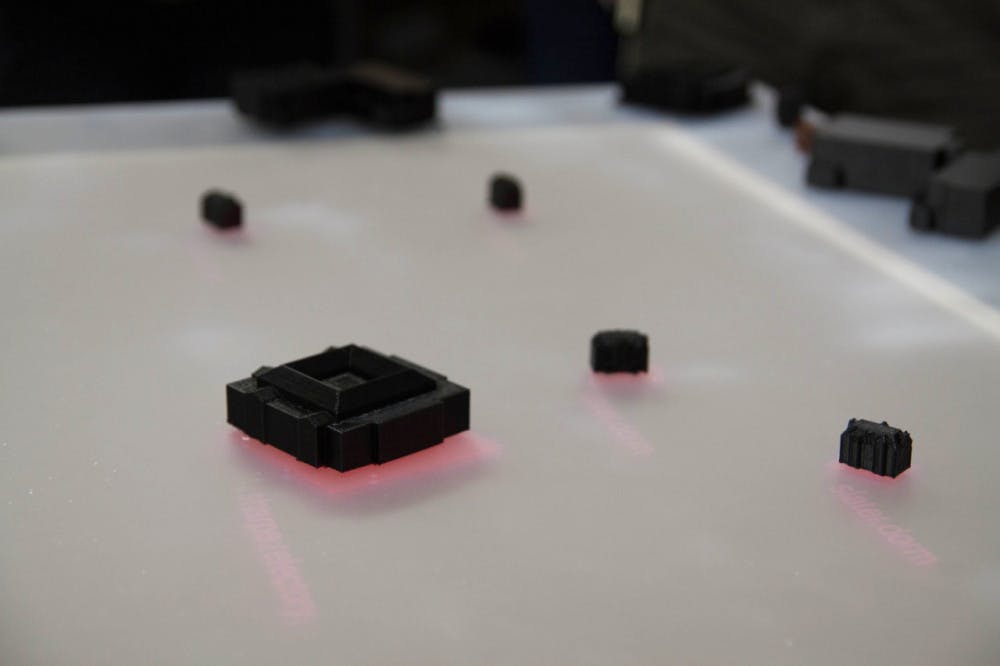A world where robots and humans coexist is becoming a reality, thanks in part to a team of researchers at Brown.
The Humanity-Centered Robotics Initiative — a group of students and faculty members aiming to investigate and meet societal needs through human-robot interaction — recently received new funding and support from the University.
HCRI plans to use the new funding to hire an associate director and a postdoctoral fellow, continue hosting conferences and grant seed funds to involve more people and encourage more collaboration in robotics research, said Michael Littman, professor of computer science.
Support from the University extends to a new base for the group. The eighth floor of the Sciences Library is currently undergoing renovation to make space for HCRI research, Littman said. Once finished, the space will feature a lab that is set up like a living room to study how robots can interact in a home environment, he added.
The initiative is led by Littman and Bertram Malle, associate chair of cognitive, linguistic and psychological sciences. Though Littman and Malle have already been working together on human-robot interaction research for approximately three years, they secured continued support for the project from Provost Richard Locke P’17 in the summer of 2015 and officially launched HCRI in December, Malle said.
“I was very taken by what seemed to be a distinctively Brown approach to robotics, which was to make it human-centric,” Locke said. “There are other major universities … that are investing heavily in robotics in a technical way, but the Brown program focuses on human problems.”
Historically, because the advancement of computer technology has been largely experimental, effects on society have been both positive and negative, Littman said. As robotics becomes more popular, HCRI aims to apply the technology to society in a beneficial way, he added.
“There are many societal needs that are currently not met, and that will only get worse. For example, we have an aging population and high healthcare expenditures,” Malle said. “Is there a way to build robotics into the system of care — not to replace people, but to extend their reach?”
Though robotics is commonly associated with fields like computer science and engineering, HCRI also involves experts from fields like philosophy and sociology. The initiative also focuses on research in ethics, policy and security, according to a University press release.
“As a society, how do we feel about the possibility that if self-driving cars come about in the next decade or so, huge numbers of people would be out of work? How do we want these beings to enter our world and interact with us?” Littman said.
The researchers are also attempting to deal with the challenge of building a moral robot, Malle said.
“If you have robots that interact with humans — that increasingly become autonomous and make decisions — those robots need to know about social and moral norms,” Malle said. “Our goal is to study how the human moral system works and how this knowledge can be transferred to robots.”
Danny Ullman GS joined Malle’s team in September and studies human-robot interaction from the angle of cognitive science. “My work focuses on how people perceive robots as agents, and how these perceptions affect human interactions with robots in social settings,” Ullman said.
Since spring 2015, Tushar Bhargava ’17 has worked with Littman’s user -programming-of-devices group to increase accessibility to and research applications of the Internet of Things, a technology infrastructure that can connect devices such as lights to the Internet, which can then be controlled using a smartphone, he said. “Our group wants to find out how we can use the Internet of Things to make ‘smart homes,’ and what sort of good smart homes can do.”
“This is something tangible that could possibly make a huge difference,” Bhargava said. “It’s a preview of the future of technology.”





